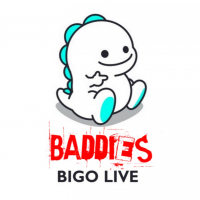Streaming as a profession: pros and cons
Streaming as a Profession: Pros and Cons
In recent years, streaming has evolved from a hobby into a full-fledged profession. Thousands of people around the world go live every day on Twitch, YouTube, Kick, or other platforms to stream games, interact with their audience, or share creative content. But can streaming really be considered a career? What advantages and disadvantages await those who decide to dedicate their life to this field?
What is Streaming and Why It Became Popular
Streaming is the live broadcast of video over the internet. Most often, it involves video games, but other formats are also gaining popularity: IRL (interaction and daily life), podcasts, music, sports, and education.
The growing interest in streams can be explained by several factors:
- Viewers want "live" content without scripts or editing;
- The ability to interact directly with the streamer makes the experience unique;
- Gaming and entertainment platforms actively develop features for content creators.
For many people, streaming has become a source of income, and for some, a full-time profession.
Advantages of Being a Streamer
1. Earning Money Doing What You Love
The main advantage is monetizing your hobby. Games, creative work, or conversational formats turn into a source of income. A streamer's earnings consist of donations, paid subscriptions, advertising, partnership programs, and merchandise sales. Successful streamers can make thousands of dollars per month.
2. Flexible Schedule and Independence
Streamers choose their own broadcast times, duration, and frequency. There’s no boss, fixed office, or strict schedule. For many, this is a major reason to pursue the profession — they can work from home while studying or combining it with other activities.
3. Direct Interaction with the Audience
Streaming allows real-time communication with people from different countries, getting feedback, and building a personal community. Successful streamers often turn followers into a loyal fan base that supports them for years.
4. Creative Freedom
Unlike television or traditional content, streams are almost limitless in format. You can host broadcasts about games, music, sports, cooking, travel, or just chatting. Each streamer chooses their style and presentation, creating unique content.
5. Career Growth Opportunities
Streaming can become a springboard for other activities: blogging, podcasting, esports, marketing. Many famous streamers open their own studios, sign contracts with brands, or even appear on television.
Disadvantages of Being a Streamer
1. High Competition
Today, thousands of people aim to become streamers. To stand out, you need a unique style, charisma, or an unusual format. Beginners often struggle to attract their first viewers, especially without investing in promotion.
2. Unstable Income
Even popular streamers often face drops in views and revenue. Everything depends on platform algorithms, audience interests, and personal activity. For beginners, earnings may remain minimal for a long time.
3. Emotional Strain
Constant interaction with the audience requires energy and patience. Streamers encounter hate, criticism, and toxic viewers. Pressure from the audience and the need to be "on" in front of the camera often lead to burnout.
4. Dependence on Platforms
Career success is directly linked to the platform used. A ban or suspension can instantly remove income and audience. Additionally, partnership program conditions and algorithms are constantly changing.
5. High Initial Investment
Creating quality content requires equipment: a powerful computer, camera, microphone, lighting, and stream design. For many beginners, this represents a significant expense.
Who Should Consider a Career as a Streamer
Streaming is suitable for people who:
- Enjoy communication and aren’t afraid to be in the spotlight;
- Are willing to work on their personal brand and continuously learn;
- Are disciplined and capable of regular broadcasts;
- Can handle stress and criticism.
If someone sees streaming only as an easy way to earn money, they are likely to face disappointment quickly. But for those ready to develop and invest in themselves, it can become a successful career.
How to Start a Streaming Career
- Choose a platform — Twitch, YouTube, or alternatives.
- Define a niche: games, IRL, music, education.
- Set up equipment and software (OBS, Streamlabs).
- Create a broadcast schedule and stick to it.
- Engage actively with your audience: chat interaction, clips, and social media posts.
- Gradually enable monetization and partnership programs.
Conclusion: Is Streaming a Viable Profession?
Streaming as a profession offers many advantages — freedom, earning money doing what you love, and creative fulfillment. However, it also comes with instability, competition, and emotional risks.
For some, it’s a hobby generating extra income; for others, it’s full-time work. Success in streaming depends on persistence, charisma, and a strategic approach. While not everyone becomes a millionaire in this field, streaming provides modern creators with unique opportunities unavailable in traditional professions.
Our Services for Streamers
Our Services for Content Creators











